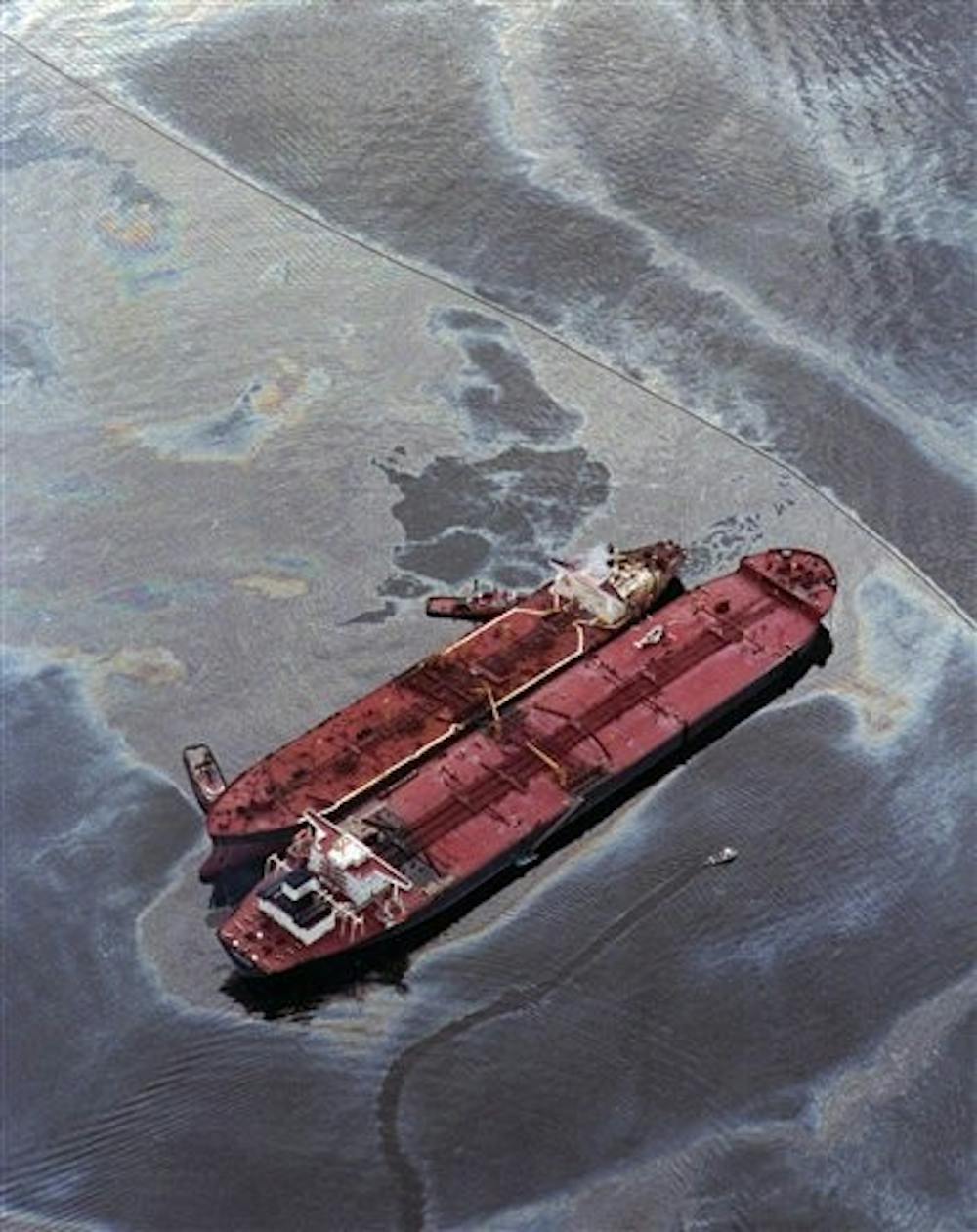WASHINGTON – The Supreme Court on Wednesday seemed inclined to reduce the $2.5 billion award of punitive damages to victims of the Exxon Valdez disaster.\nSeveral justices indicated they think the amount approved by a federal appeals court is too high, although there was no apparent consensus about how much Exxon Mobil Corp. should have to pay for the 1989 accident in which its 987-foot tanker ran aground on a reef and dumped 11 million gallons of oil into Alaskan waters.\nJustices Anthony Kennedy and David Souter suggested that perhaps a reasonable number would be twice the amount of money the company has paid to compensate victims for economic losses. Walter Dellinger, representing Exxon, said the company has paid about $500 million in such costs.\nOverall, Exxon has paid $3.4 billion in fines, penalties, cleanup costs, claims and other expenses resulting from the worst oil spill in U.S. history.\n“Exxon gained nothing by what went wrong in this case and paid dearly for it,” Dellinger said, in urging the court to erase the punitive damages judgment that has been upheld by the San Francisco-based 9th U.S. Circuit Court of Appeals.\nStanford University law professor Jeffrey Fisher said the nearly 33,000 commercial fishermen, Native Alaskans, landowners, businesses and local governments he represents have each received about $15,000 so far “for having their lives destroyed.”\nFisher said nothing in prior Supreme Court decisions should cause the justices to overturn the $2.5 billion award, about $75,000 for each plaintiff.\nBut Souter said the court has struggled for the past decade to limit excessive punitive damages awards and wondered why the justices should not come up with a number in this case.\n“Would that be illegitimate or unwise?” he asked Fisher.\n“I’ll stick with unwise, Justice Souter,” Fisher said.\nIt was less clear how the court would resolve the issue of whether the company could be held liable at all for the acts of Exxon Valdez captain Joseph Hazelwood. Hazelwood was not on the ship’s bridge when the accident occurred and had been drinking shortly before it left port, both in violation of Coast Guard rules and company policy.\nJustice Samuel Alito, who owns Exxon stock, is not taking part in the case. A 4-4 split on that or any issue would leave the appeals court ruling in place.\nTwo brothers from Cordova, Alaska, were in line in front of the Supreme Court on Wednesday morning, waiting to watch the arguments inside.\nCommercial fisherman Steve Copeland, who was 41 at the time of the spill, said he cannot afford to retire because his business has never recovered from the steep decline it suffered due to the disaster.\nHis brother, Tom, said Exxon “needs to get told they need to be a better corporate citizen.”\nA jury initially awarded $287 million to compensate for economic losses and $5 billion in punitive damages. The appeals court cut the punitive damages in half. The compensatory damages have been paid.\nExxon argues that long-standing maritime law and the 1970s-era Clean Water Act should bar any punitive damages, which are intended both to punish behavior and deter a repeat. The company says it should not be held accountable for Hazelwood’s reckless conduct.\nThe plaintiffs say the judgment, representing three weeks of Exxon’s 2006 profit, is rational and proportionate. It takes account of Exxon’s decision to allow Hazelwood to command the ship, despite knowing he had an ongoing drinking problem, the plaintiffs contend.\nThe case is Exxon Shipping Co. v. Baker, 07-219.
Supreme Court could reduce $2.5B damage costs in Exxon Valdez lawsuit

Get stories like this in your inbox
Subscribe



